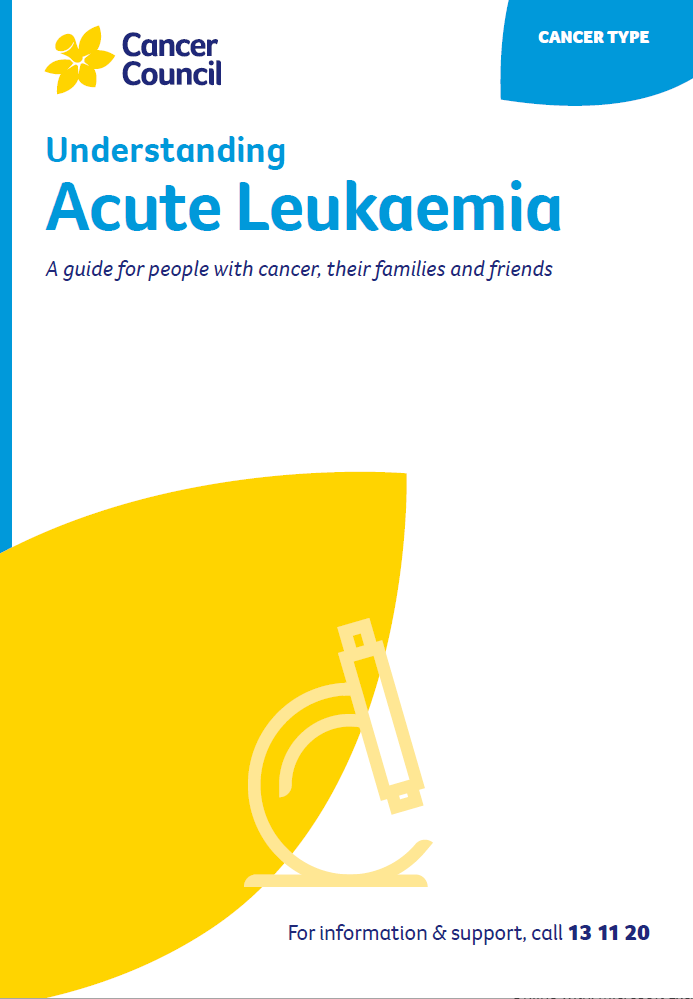- Home
- Acute myeloid leukaemia (AML)
- Treatment
Treatment for AML
Because acute myeloid leukaemia (AML) develops quickly, treatment usually begins as soon as a diagnosis is made.
Learn more about:
- Overview
- Making treatment decisions
- Chemotherapy
- Stem cell transplant
- Targeted therapy
- Radiation therapy
- Treatment for APML
- Palliative treatment
Overview
Treatment will depend on the subtype, the genetic make-up of the AML, and your overall health and age. In most cases, your doctor will need the results of genetic tests and immunophenotyping to work out the best treatment for you. It may take up to 2 weeks for these results to come through.
For younger people, chemotherapy is the main treatment (see below). Older people are generally treated with a lower intensity therapy, including an oral drug called venetoclax. You may have other treatments depending on the subtype and how the AML responds to the drugs you are given.
Asking about fertility
Treatment for ALL can cause temporary or permanent infertility. If you may want to have children in the future, ask your doctor for a referral to a fertility specialist before treatment starts. You may be able to store eggs, embryos, ovarian tissue or sperm for later use. While there have been significant advances, preserving fertility is not guaranteed.
For more on this, see Infertility.
→ READ MORE: Making treatment decisions
Podcast: Making Treatment Decisions
Listen to more episodes from our podcast for people affected by cancer
More resources
Dr Jonathan Sillar, Haematologist, Calvary Mater Newcastle (clinical review); Dr Scott Dunkley, Haematologist, Royal Prince Alfred Hospital and Chris O’Brien Lifehouse; Sharon Frazer, Consumer; Dr Robin Gasiorowski, Staff Specialist, Haematology, Concord Hospital; Prof Angela Hong, Radiation Oncologist, Chris O’Brien Lifehouse, and Clinical Professor, The University of Sydney; Yvonne King, 13 11 20 Consultant, Cancer Council NSW; Heather Mackay, Clinical Nurse Consultant – Haematology, Westmead Hospital; Katelin Mayer, Clinical Nurse Consultant, Cancer Outreach Team, Nelune Comprehensive Cancer Centre.
View the Cancer Council NSW editorial policy.
View all publications or call 13 11 20 for free printed copies.

